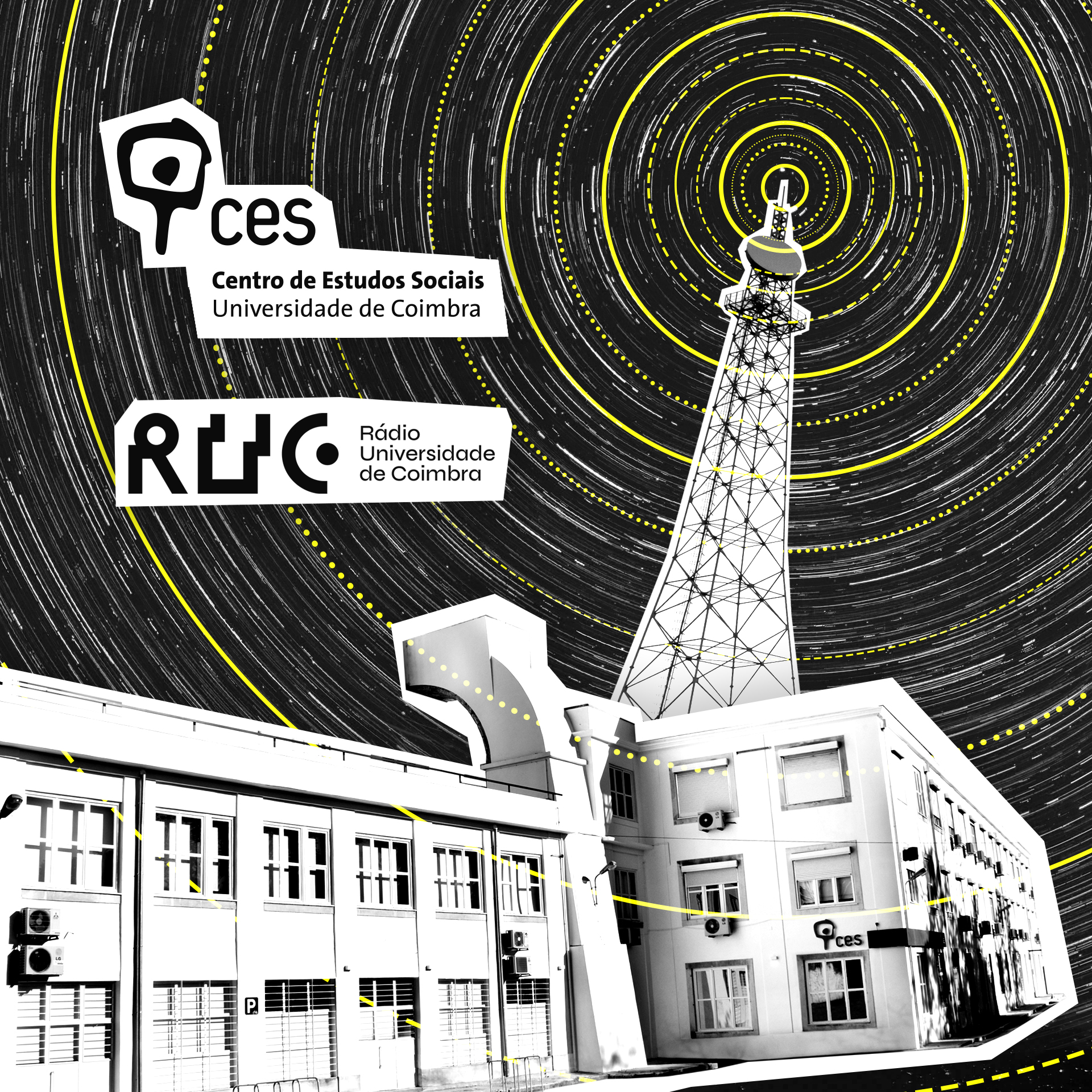Radio Show
Há Vida(s) nesta Cidade! #5 with Sofia José Santos and Alexandre de Sousa Carvalho
August 28, 2021, 14h00 (GMT+1)
Rádio Universidade de Coimbra
About
Isabel Simões, Inês Nascimento Rodrigues, Júlia Garraio and Vasco Martins talk with Sofia José Santos and Alexandre Sousa Carvalho about "Masculinities and the Media".
Sixth programme of a partnership between Radio Universidade de Coimbra and the Centre for Social Studies (CES), within the scope of the research developed by NHUMEP | Humanities, Migrations and Peace Studies Research Group. This collaboration is conducted through the programme "Há Vida(s) Nesta Cidade!", directed by Isabel Simões, and will take place on the last Saturday of each month, starting at 2pm.
The programme can be heard live at : https://www.ruc.pt
Bio notes
Sofia José Santos is Assistant Professor in International Relations at the Faculty of Economics, University of Coimbra, and a Researcher at the Center for Social Studies, where she coordinates the DeCodeM project as a Principal Investigator. Since 2008 she has developed research on media and global interventionism; media and securitization processes; media and foreign policy; internet and technopolitics; and media and masculinities. Within CES, she is also coordinator for Promundo-Portugal's Media and Masculinities programming area and co-editor of Alice News. She holds a PhD and an MA in International Politics and Conflict Resolution by the Faculty of Economics of the University of Coimbra, a degree in International Relations from the same university, and a Diploma in Advanced Studies in Communication Sciences from ISCTE-IUL. Previously, she was an Invited Assistant Professor in International Relations at the Faculty of Economics of the University of Coimbra (2016-2019), a postdoctoral researcher at OBSERVARE / UAL (2015/2016) and CES (2015), and researcher and coordinator of media and communication in Promundo-Europa (2014-2015). She was also a visiting scholar at the Flemish Peace Institute and a Marie Curie fellow at the Universiteit Utrecht. In addition to publications, conferences and national and international research projects, it is also worth mentioning her work in co-coordinating and co-editing the P@x Bulletin of the NHUMEP Peace Studies Group, her involvement in international networks, social movements, and the several research works she has undertaken for international think tanks and development agencies such as NOREF, UKAID, Palladium, and Promundo-US. Her current research interests focus on media representations and securitization; media and foreign policy; media, masculinities and violence prevention; digital rights and contentious politics; and critical internet studies.
Alexandre de Sousa Carvalho is a researcher at DeCode/M, where he facilitates the thematic area "Populism and Extreme Masculinities", and actively participates in the core study, "Me Too" and "Fatherhood, Household Roles and Caregiving". He also contributes to the communications and outreach strategy. He has been a Guest Assistant Lecturer at the Faculty of Economics of the University of Coimbra since February 2017, where he has been lecturing at undergraduate and graduate programmes in International Relations, Development, Peace and Security Studies. He is a PhD Candidate in Political Science at ISCTE-IUL in Lisbon and holds a Master's degree in African Peace and Conflict Studies from the University of Bradford, UK, and a Bachelor's degree in International Relations from the University of Coimbra in Portugal. Alexandre has over 10 years of combined research and consulting experience in academic research centres and think-tanks, governmental agencies and non-governmental organizations, and as a consultant or expert in over 30 reports of commissioned research for international development agencies and European Commission departments. His areas of expertise lie in international relations; critical theory; political science; peace and security studies; and power-sharing. His current research interests include discourse, semiotics and political representations; internet and societal change; and gender studies with a focus on masculinities and on the (de)construction of 'populist political masculinism'.


